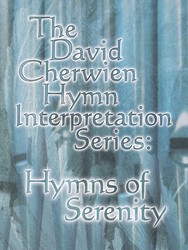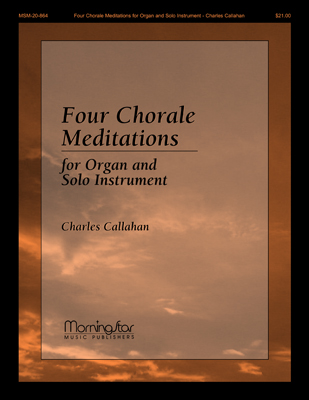- |
User Links
Liebster Jesu, wir sind hier, Deinem Worte nachzuleben
Liebster Jesu, wir sind hier, Deinem Worte nachzuleben
Author: Benjamin SchmolckTune: LIEBSTER JESU (Ahle)
Published in 45 hymnals
Representative Text
1 Leibster Jesu, wir sind hier,
deinem Worte nachzuleben;
dieses Kindlein kommt zu dir,
weil du den Befehl gegeben,
daß man sie zu hinführe,
denn das Himmelreich ist ihre.
2 Ja, es schallet allermeist
deises Wort in unsern Ohren:
"Wer durch Wasser und durch Geist
nicht zuvor ist neu geboren,
wird von dir nicht aufgenommen
und in Gottes Reich nicht kommen."
3 Darum eilen wir zu dir;
nimm das Pfand von unsern Armen,
tritt mit deinem Glanz herfür
und erzeige dein Erbarmen,
daß es dein Kind hier auf Erden
und im Himmel möge werden.
4 Hirte, nimm dein Schäflein an;
Haupt, mach es zu deinem Gliede;
Himmelsweg, zeig ihm die Bahn;
Friedefürst, sie du sein Friede;
Weinstock, hilf, daß diese Rebe
auch im Glauben dich umgebe.
5 Nun wir legen an dein Herz,
was vom Herzen ist gegangen.
Führ die Seufzer himmelwärts
und erfülle das Verlangen;
ja den Namen, den wir geben,
schreib ins Lebensbuch zum Leben.
Source: Antwort Finden in alten und neuen Liedern, in Worten zum Nachdenken und Beten: evangelisches Gesangbuch (Bayern, Mitteldeutschland, Thüringen) #206
Author: Benjamin Schmolck
 Schmolck, Benjamin, son of Martin Schmolck, or Schmolcke, Lutheran pastor at Brauchitschdorf (now Chrόstnik) near Liegnitz in Silesia (now Poland) was born at Brauchitschdorf, Dec. 21, 1672. He entered the Gymnasium at Lauban in 1688, and spent five years there. After his return home he preached for his father a sermon which so struck the patron of the living that he made Benjamin an allowance for three years to enable him to study theology. He matriculated, at Michaelmas, 1693, at the University of Leipzig, where he came under the influence of J. Olearius, J. B. Carpzov, and others, and throughout his life retained the character of their teaching, viz. a warm and living practical Christianity, but Churchly in tone and not Pietistic. In th… Go to person page >
Schmolck, Benjamin, son of Martin Schmolck, or Schmolcke, Lutheran pastor at Brauchitschdorf (now Chrόstnik) near Liegnitz in Silesia (now Poland) was born at Brauchitschdorf, Dec. 21, 1672. He entered the Gymnasium at Lauban in 1688, and spent five years there. After his return home he preached for his father a sermon which so struck the patron of the living that he made Benjamin an allowance for three years to enable him to study theology. He matriculated, at Michaelmas, 1693, at the University of Leipzig, where he came under the influence of J. Olearius, J. B. Carpzov, and others, and throughout his life retained the character of their teaching, viz. a warm and living practical Christianity, but Churchly in tone and not Pietistic. In th… Go to person page >Text Information
| First Line: | Liebster Jesu, wir sind hier, Deinem Worte nachzuleben |
| Author: | Benjamin Schmolck |
| Language: | German |
| Notes: | Swahili translation: See "Bwana twakuletea" |
| Copyright: | Public Domain |
French
German
- Antwort Finden in alten und neuen Liedern, in Worten zum Nachdenken und Beten: evangelisches Gesangbuch (Bayern, Mitteldeutschland, Thüringen) #206
- Das neue Gemeinschaftliche Gesangbuch, zum ... der Lutherischen und Reformirten Gemeinden in Nord-Amerika ... neuen Anhg. #d223
- Deutsche Gesangbuch fuer die Evangelisch-Lutherische Kirche in den Vereinigten Staaten Herausgegeben mit kirchlicher Genehmigung #d368
- Deutsches Gesang- und Choralbuch: eine Auswahl geistlicher Lieder ... Neue, verbesserte und verhmehrte Aufl. #a245
- Deutsches Gesangbuch fuer die evangelisch-lutherische Kirche in den Vereinigten Staaten. Verbesserte Ausg. #d360
- Deutsches Gesangbuch für die Evangelisch-Luterische Kirche in den Vereinigten Staaten: herausgegeben mit kirchlicher Genehmigung #289
- Deutsches Gesangbuch für die Evangelisch-Luterische Kirche in den Vereinigten Staaten: herausgegeben mit kirchlicher Genehmigung (22nd aufl.) #289
- Deutsches Gesangbuch: eine auswahl geistlicher Lieder aus allen Zeiten der Christlichen Kirche #245
- Deutsches Gesangbuch: eine auswahl geistlicher Lieder aus allen Zeiten der Christlichen Kirche für kirchliche und häusliche Gebrauch (Neue, verb. und verm. Aufl) #245
- Deutsches Gesangbuch: für den Evangelisch-Lutherische Kirche in den Vereinigten Staaten herausgegen mit kirchlicher Genehmigung #289 10 shown out of 44
Liebster Jesu wir sind hier Deinem Worte nachzuleben. B. Schmolch. [Holy Baptism.] First published in his Heilige Flammen(ed. 1709, No. 115, p. 180, apparently first in the 3rd ed., 1706), in 7 stanzas of 6 lines, entitled "Seasonable Reflections of the sponsors on their way with the child to Baptism." Included in many German collections, and recently as No. 462 in the Berlin Geistliche Lieder, ed. 1863. Translated as:—
1. Jesus, lord, Thy servants see. A good translation, omitting st. iv., by Miss Cox in her Sacred Hymns from the German, 1841, p. 63 (1864, p. 73). Repeated in full in Mercer's Church Psalter & Hymn Book. 1857; and, abridged, in Mercer's Ox. ed., 1864, Rorison's Hymns & Anthems, 1851, and the Wesleyan Hymn Book, 1875.
2. Blessed Jesus, here we stand. A good translation, omitting st. iv., by Miss Winkworth in her Lyra Germanica, 2nd Ser., 1858, p. 86 (in her Chorale Book for England. 1863, No. 90). Included in the Scottish Hymnal, 1869, &c.; and, in America, in the Pennsylvanian Lutheran Church Book, 1868, Presbyterian Hymnal, 1874, &c. According to Kübler (Historical Notes to Lyra Germanica 1865, p. 220), this version was sung, April 27, 1863, at the baptism of the Princess Victoria of Hesse at Windsor Castle .
3. Blessed Jesus, we are here. A goodtranslation omitting stanza v., by Dr. Kennedy, as No. 234 in his Hymnologia Christiana, 1863.
4. Blessed Lord, Thy servants see. This is No. 166 in Dr. Allon's Supplemental Hymns, 1868, and consists of translations of stanzas i., vi., altered from Miss Cox, and of st. vii., altered from Miss Winkworth. Repeated in Dr. Dale's English Hymn Book, 1874, Horder's Congregational Hymns, 1884, &c.
5. Dearest Jesus! we are here, On Thy tender grace relying. In full, by Dr. M. Loy, as No. 222 in the Ohio Lutheran Hymnal, 1880.
Other translations are:—(1) "O blessed Saviour! here we meet,” by Lady E. Fortescue, 1843, p. 20. (2) “According to Thy Gospel, we,” by Dr. G. Walker, 1860, p. 34. (3) “Following Thy words of grace,” as No. 935 in the Moravian Hymn Book, 1886. [Rev. James Mearns, M.A.]
--John Julian, Dictionary of Hymnology (1907)
Notes
Liebster Jesu wir sind hier Deinem Worte nachzuleben. B. Schmolch. [Holy Baptism.] First published in his Heilige Flammen(ed. 1709, No. 115, p. 180, apparently first in the 3rd ed., 1706), in 7 stanzas of 6 lines, entitled "Seasonable Reflections of the sponsors on their way with the child to Baptism." Included in many German collections, and recently as No. 462 in the Berlin Geistliche Lieder, ed. 1863. Translated as:—
1. Jesus, lord, Thy servants see. A good translation, omitting st. iv., by Miss Cox in her Sacred Hymns from the German, 1841, p. 63 (1864, p. 73). Repeated in full in Mercer's Church Psalter & Hymn Book. 1857; and, abridged, in Mercer's Ox. ed., 1864, Rorison's Hymns & Anthems, 1851, and the Wesleyan Hymn Book, 1875.
2. Blessed Jesus, here we stand. A good translation, omitting st. iv., by Miss Winkworth in her Lyra Germanica, 2nd Ser., 1858, p. 86 (in her Chorale Book for England. 1863, No. 90). Included in the Scottish Hymnal, 1869, &c.; and, in America, in the Pennsylvanian Lutheran Church Book, 1868, Presbyterian Hymnal, 1874, &c. According to Kübler (Historical Notes to Lyra Germanica 1865, p. 220), this version was sung, April 27, 1863, at the baptism of the Princess Victoria of Hesse at Windsor Castle .
3. Blessed Jesus, we are here. A goodtranslation omitting stanza v., by Dr. Kennedy, as No. 234 in his Hymnologia Christiana, 1863.
4. Blessed Lord, Thy servants see. This is No. 166 in Dr. Allon's Supplemental Hymns, 1868, and consists of translations of stanzas i., vi., altered from Miss Cox, and of st. vii., altered from Miss Winkworth. Repeated in Dr. Dale's English Hymn Book, 1874, Horder's Congregational Hymns, 1884, &c.
5. Dearest Jesus! we are here, On Thy tender grace relying. In full, by Dr. M. Loy, as No. 222 in the Ohio Lutheran Hymnal, 1880.
Other translations are:—(1) "O blessed Saviour! here we meet,” by Lady E. Fortescue, 1843, p. 20. (2) “According to Thy Gospel, we,” by Dr. G. Walker, 1860, p. 34. (3) “Following Thy words of grace,” as No. 935 in the Moravian Hymn Book, 1886. [Rev. James Mearns, M.A.]
--John Julian, Dictionary of Hymnology (1907)


 My Starred Hymns
My Starred Hymns




